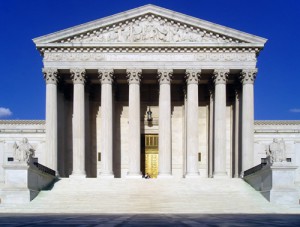The Beginning of the End for Public Unions
Tired of unions taking money from your paycheck every month? The Supreme Court might have the answer soon.
 Stephanie Yencer-Price provides in-home care for her daughter, who requires constant care due to certain medical conditions. Illinois pays Stephanie and many others for this type of work. In 2003, Illinois began classifying personal assistants as public employees solely for the purpose of collective bargaining. As a result, personal assistants like Stephanie had to pay “agency fees” to public unions. The problem is that Stephanie and personal assistants like her are not union members. The workers took their case against the unions all the way to the Supreme Court.
Stephanie Yencer-Price provides in-home care for her daughter, who requires constant care due to certain medical conditions. Illinois pays Stephanie and many others for this type of work. In 2003, Illinois began classifying personal assistants as public employees solely for the purpose of collective bargaining. As a result, personal assistants like Stephanie had to pay “agency fees” to public unions. The problem is that Stephanie and personal assistants like her are not union members. The workers took their case against the unions all the way to the Supreme Court.
Public unions are able to extract fees from non-union members because there is a “free-rider” problem. In theory, unions represent all the workers of a company or government agency. When the union negotiates for higher pay or other benefits, all workers will obtain the benefits. However, even if some workers refuse to join the union, the benefits that the union negotiates for will still go to the non-union workers. In short, the union would be representing people who are not part of the union. To ensure that workers don’t reap the benefits of union representation without paying for fees, the Supreme Court allowed unions to collect “agency fees” from non-members in a 1977 case.
The recent case of Harris v. Quinn undermines this union structure by keeping personal assistants away from the long arm of union fee collection. The Court decided that since personal assistants are hired and fired by the people they serve – rather than the state – personal assistants are not full public employees, exempting them from union fees. This case still scares union leaders though because it could easily snowball into a national right to work.
The right to work means that each individual worker has the right to choose whether he or she wants to be represented by a union. This “right” would shield non-members from union collection fees. The Court supplied the justification for this right by ruling that coerced union fees violates the 1st Amendment.
Modern Slavery
It was bold for the Court to restrict union agency fees through the 1st Amendment, but the Court used the wrong constitutional amendment. Instead of using the 1st Amendment, the Court should have based its decision on the 13th. The 13th amendment is the amendment which banned “slavery” and “involuntary servitude” in the United States. Traditional 13th amendment interpretation defined slavery as the inability to quit work. That’s exactly what mandatory union fees are.
When a worker is hired to work for a company, the worker expects to exchange labor for the company’s money. The third wheel of the relationship, the labor union, takes a portion of the worker’s pay, regardless of how the worker feels about it. The worker can’t leave the unhappy relationship with this third party and thus the worker is forced to work on the union’s behalf.
Union proponents might say that the union is also working for the non-member worker. If the worker stops paying fees, it would the union which labors on the non-member’s behalf without ability to stop. The problem with this argument is that the union is not directly laboring for the non-member. The union bargains with the employer and the employer is the one giving the benefits. In contrast, the non-union worker who is forced to give up fees is directly contributing to the union’s coffers.


Comments